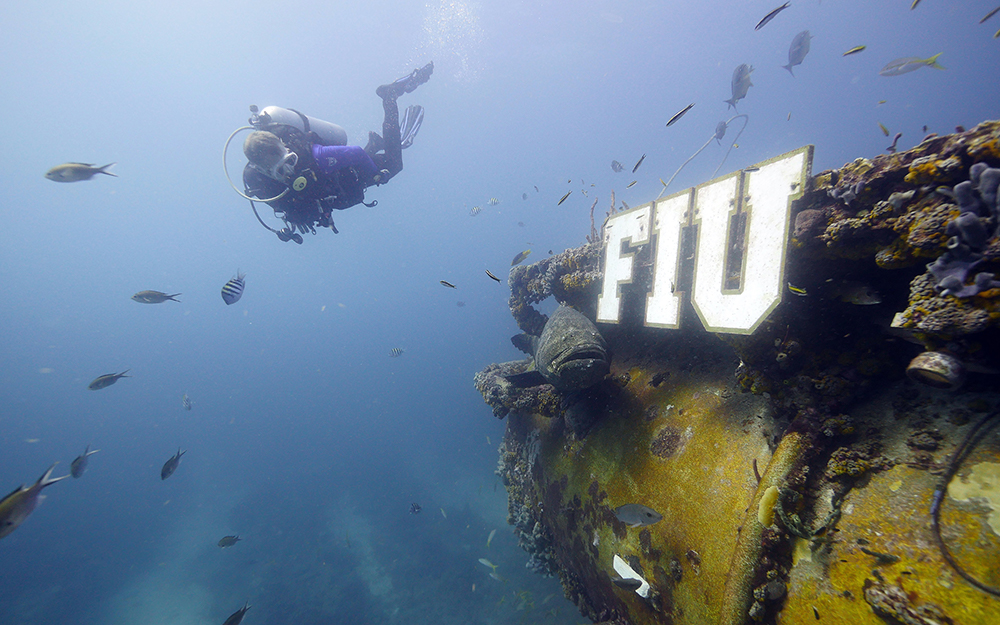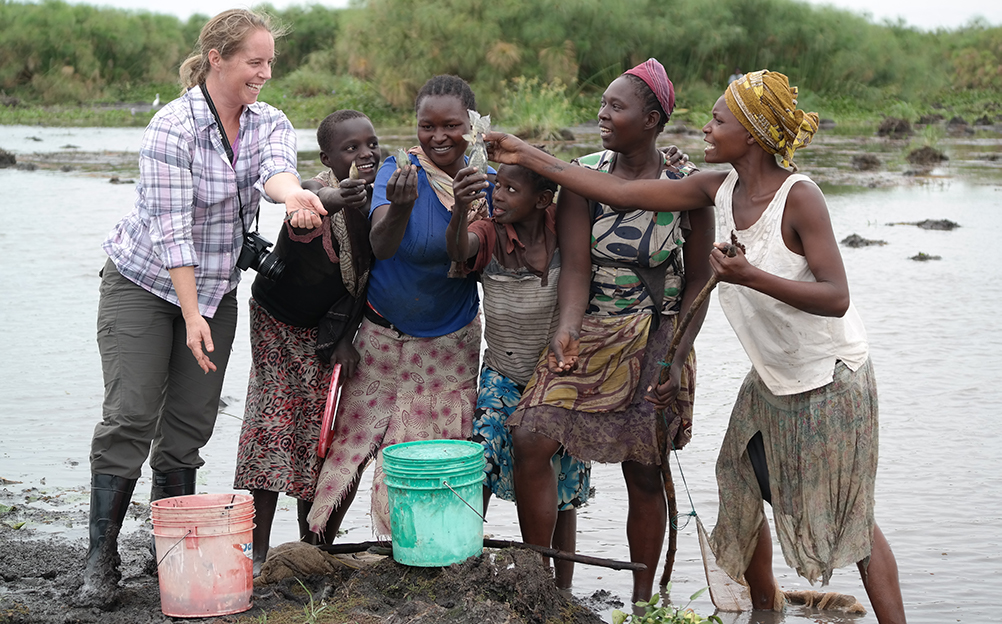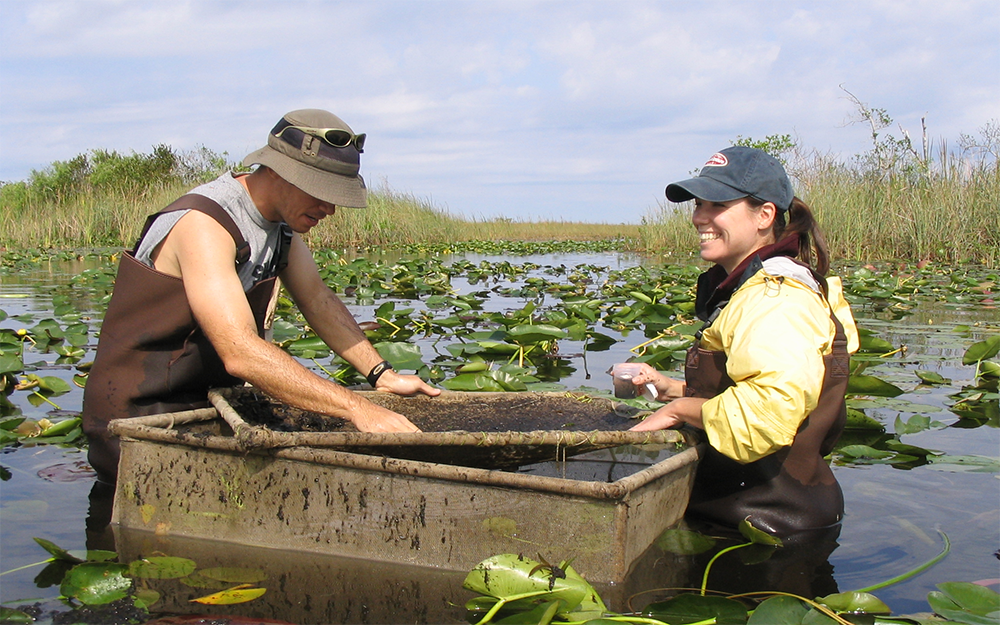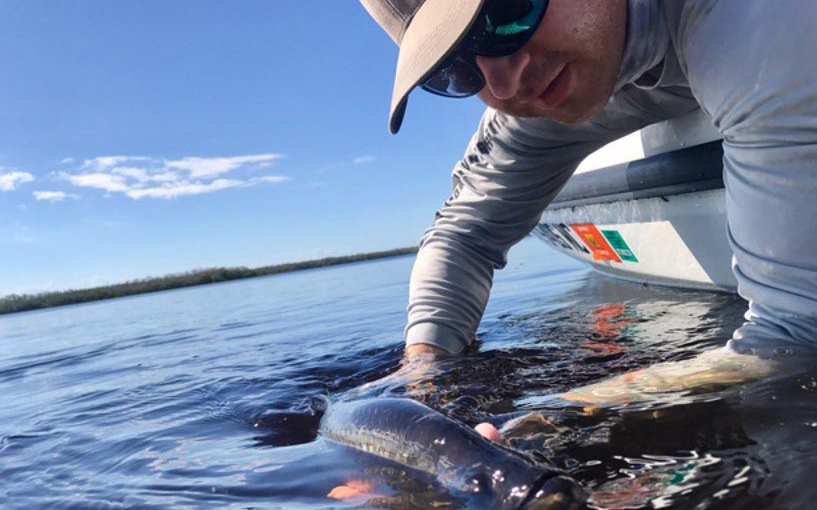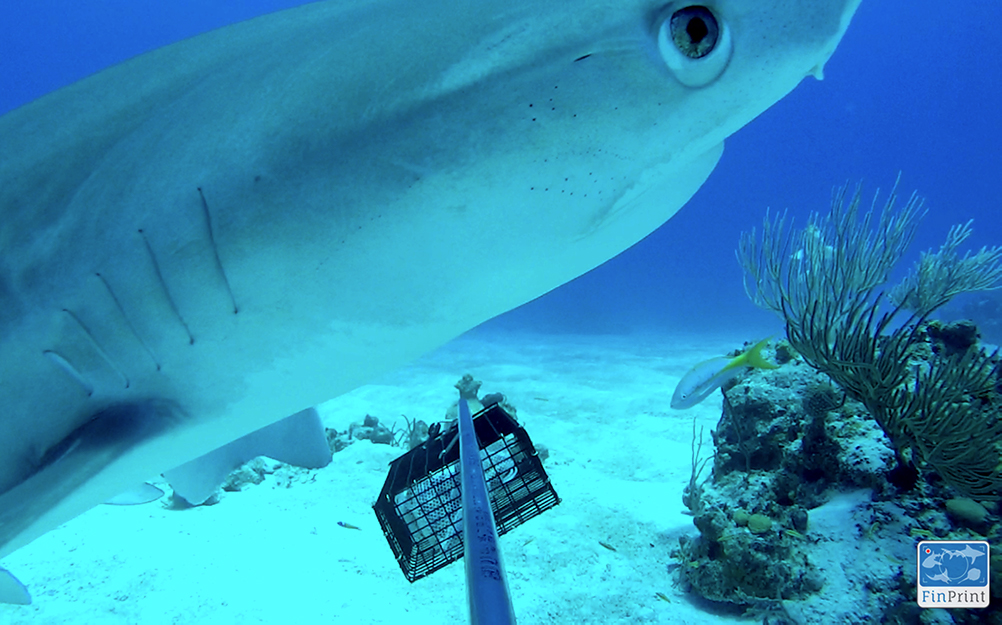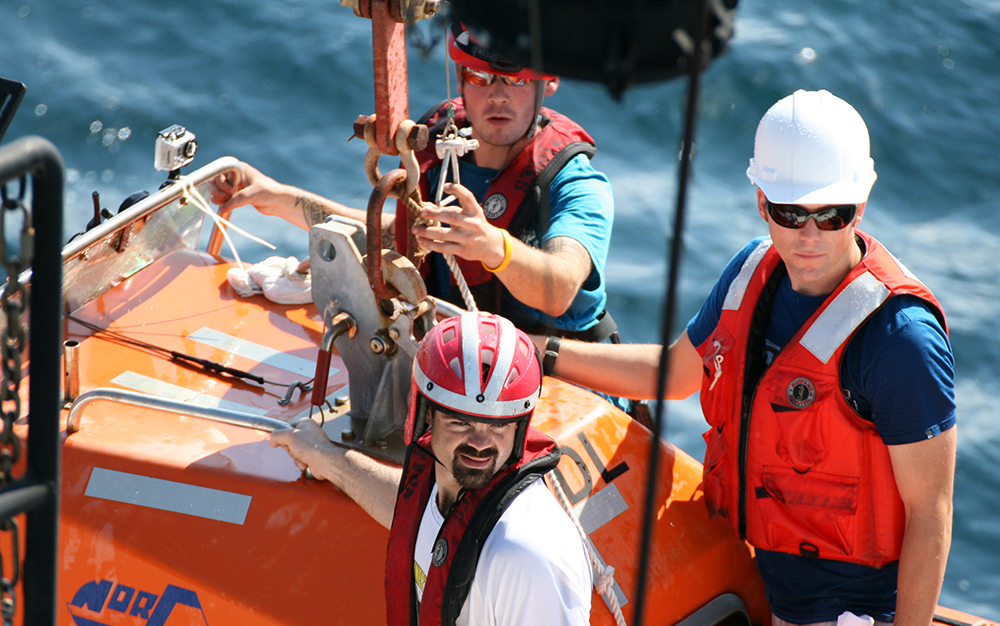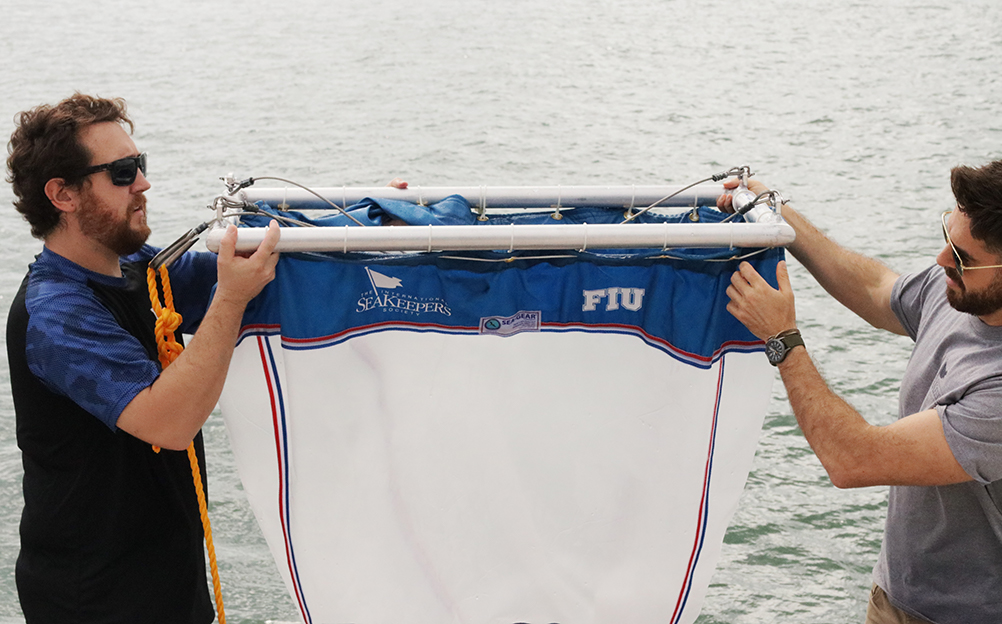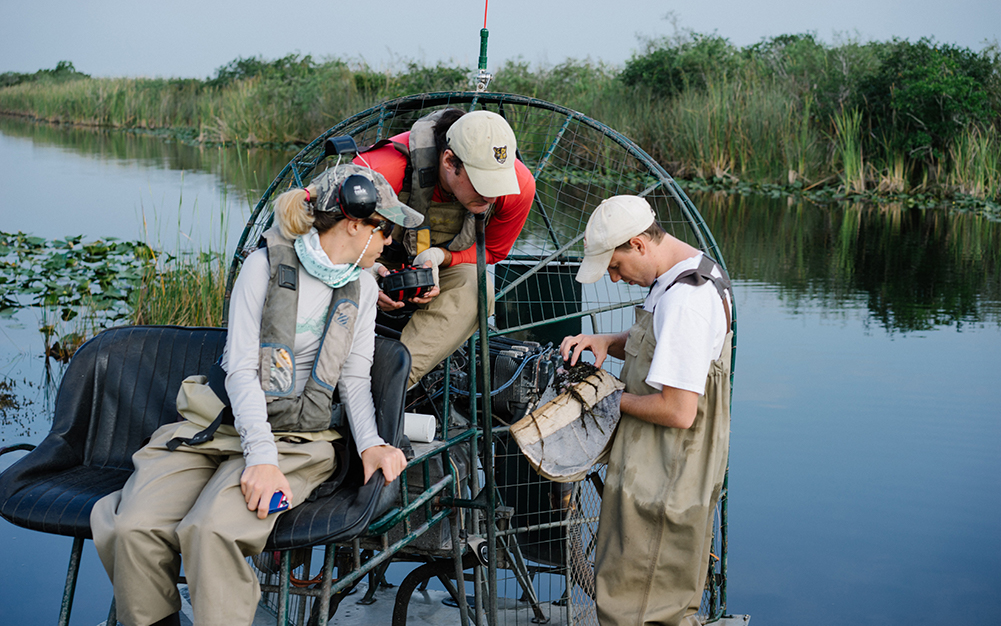–By JoAnn Adkins for CASE News
FIU has been ranked No. 9 in the world for positive impact on life below water by The Times Higher Education Impact Rankings. The university ranked third in the United States and is the only institution in the state of Florida to make the list.
Faculty, students, and staff in FIU’s College of Arts, Sciences & Education work across a variety of disciplines on water-related research and education throughout the world. Its Institute of Environment is leading projects that support and safeguard the survival of key ecosystems and species in both freshwater and saltwater environments. Researchers are addressing sea level rise, the environmental and economic realities of climate change, management strategies for sustainable fisheries, and providing the science to ensure marine animals, aquatic plants, coral reefs, and the places they all call home remain healthy.
“Our globally recognized research programs develop realistic and scalable solutions to the environmental crises we face today and are the scientific foundation for preventing future ones,” said Mike Heithaus, marine scientist and dean of the College of Arts, Sciences & Education. His work in Shark Bay, Australia is the most detailed study of the ecological role of sharks in the world and has been used as the underpinning for affecting positive policy changes.
“We work with governments and the public to ensure the solutions that are implemented ensure the sustainability or recovery of marine resources along with the livelihoods of the people who depend on them,” he said.
The ridge-to-reef approach in environmental research at FIU is conducted on every continent, collaborating with partners locally and internationally. Efforts have led to significant policy changes on conservation, expanded protections for endangered species, improved sanitation and access to clean water in developing nations, and improved protections for vital natural resources.
In the field, scientists are studying animal behavior, over-fishing, by-catch, habitat destruction, ocean acidification, pollution and ways to protect seagrasses, one of the world’s greatest assets for storing carbon. Projects encompass long-term processes such as climate change and impacts of catastrophic events such as an oil spill. Researchers are even planning research missions to study the impacts of social distancing on the health of the oceans amid the 2019-2020 coronavirus pandemic.
To do their work, research teams develop and deploy cutting-edge technologies including animal-borne cameras, baited remote underwater video, satellite tags, biosensors, customized sonar and drones that fly and ones that run across or under the water. They are innovating in the lab, developing new techniques for rapid DNA testing to disrupt illegal wildlife trafficking of sharks, European eels and other species.
Highlights from FIU’s marine research programs include:
- The Medina Aquarius Program features the world’s only underwater research laboratory, where scientists can investigate ocean acidification, population health of marine animals, and the catastrophic loss of coral reefs — all while living 60 feet below the ocean’s surface.
- Global FinPrint, which received core funding from Microsoft Co-Founder Paul G. Allen’s foundation, has captured more than 5,000 hours of footage, identifying hotspots and trouble-spots for shark and ray conservation, and works with governments to ensure healthy shark populations and coral reef ecosystems. The project has already led to the establishment of a nationwide ray sanctuary in Belize and a shark-fishing ban in the Dominican Republic.
- Partnering with officials in Hong Kong, FIU researchers are conducting DNA analysis on shark fins in Asian markets to disrupt illegal trafficking and trade. The team has also developed an iPhone app to help fisherman and local enforcement officials quickly and easily identify fins of protected species as well as new, portable methods for rapid DNA testing for in-the-field identification. These efforts have led to the capture of illegal shipments of endangered species, including a recent $300,000 shipment of European eels at a Hong Kong port.
- The S.A.R.A.H. initiative is a partnership between FIU and the International SeaKeepers Society to combat the growing plastic problem. Utilizing private yachts, special nets are towed behind the vessels to gather samples of even the tiniest bits of plastic debris in the water for FIU analysis and tracking.
- The National Science Foundation’s Florida Coastal Everglades Long Term Ecological Research Network is based at FIU in partnership with 25 other institutions across the United States.
- To address local, national and global water security issues, FIU and UNESCO have partnered to establish the UNESCO Chair on Sustainable Water Security.
- FIU researchers are studying the effects of water fragmentation on the quantity, quality and timing of river flow in the Amazon River Basin. Found in areas undergoing a boom in hydropower dam development, their work is helping inform better conservation and management of these precious freshwater resources.
- The Center for Aquatic Chemistry and the Environment is tackling environmental contamination through research and education and is a National Science Foundation Center of Research Excellence in Science and Technology.
FIU marine scientists are part of some the most ambitious multi-institution research initiatives in the world including the Northwest Passage Project, exploration of the ocean’s twilight zone, and investigations into the scattering layers that account for the largest animal migration on the planet, a daily vertical ascent for food from the deep sea to shallow water. They contribute to the National Science Foundation’s Assembling the Tree of Life project as part of the decapod team, using genetics to uncover the evolutionary history of 94 species of crabs, shrimps and lobsters. Just last year, biologists were awarded a coveted NSF Big Ideas grant for epigenetics research into how corals adapt to climate change. FIU is also the main research partner for the Florida Keys National Marine Sanctuary and a research partner with Rookery Bay Research Reserve.
Researchers have provided critical data to support the listings of several shark and ray species for protection by the Convention on International Trade in Endangered Species. Members of the predator team have tagged sperm whales off the coast of Guadeloupe as part of the UN Environment – Caribbean Environmental Programme’s Specially Protected Areas and Wildlife project in support of the Cartagena Convention.
Scientists in the Institute of Environment are also members of key local, national and international environmental initiatives including:
- Coastal and Estuarine Research Federation
- Global Lake Ecological Research Network
- Florida Blue-Green Algae Task Force
- Miami-Dade County Biscayne Bay Task Force
- International Blue Carbon Policy Working Group
- Science Advisory Committee for Pew Environment’s Global Shark Program
- IUCN Cetacean and Shark Specialist groups
- Expert Panel on cetacean bycatch of the International Whaling Commission
- Southeast Regional Climate Change Compact Sea Level Rise Projection Work Group
The work reaches beyond the classrooms and field sites. The university maintains partnerships with communities throughout South Florida that engage residents in citizen science initiatives and educational opportunities. The College of Arts, Sciences & Education hosts environmental camps for schoolchildren and provides educational programming to schools in Miami-Dade, Broward and Monroe counties.
Each year, the college’s Education and Outreach team harvests and grows more than 1,000 red mangrove seedlings for planting along coastlines and mentors students at MAST@FIU. They also organize the Miami Heat’s annual Beach Sweep event during NBA Green Week.
The Times Higher Education Impact Rankings assess universities against the United Nations’ Sustainable Development Goals (SDG) across the areas of research, outreach and stewardship. SDG 14 — Life Below Water — measures the social and economic impact of each university’s support for aquatic systems.
The 2020 rankings include 766 universities from 85 countries.

